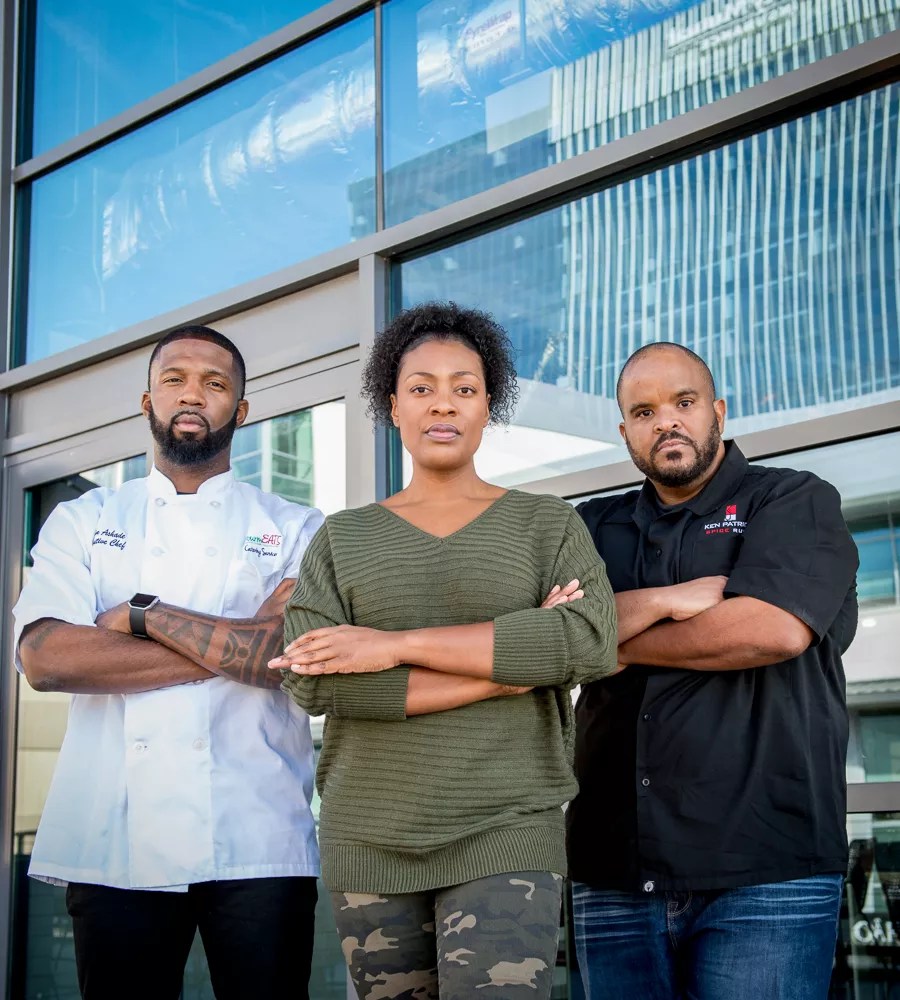
Alison McLean

Audio By Carbonatix
Lack of resources, being asked for drastic discounts, and oftentimes being the only one in the room. It’s hard to believe we’re talking about prominent chefs in Dallas, but according to African American chefs, that’s the reality of being a black chef in Dallas.
In 2012, the Chicago Tribune posed a question that sparked a huge debate in national food media: Where are the black chefs? “Can you name a single black chef at a major Chicago restaurant?” the Trib asked. “At any upscale restaurant?” Six years later and the visibility of black chefs is still a major discussion point. Three months ago, the Washington Post ran a high-profile trend piece asserting that, for black chefs, the fight for visibility is far from over.
When you think of top chefs in Dallas, what names come to mind? Better yet, when you think of top black chefs in Dallas, how many names come to mind? Can you name 10? Five? But why is this the case when it comes to the kitchen, a place where black people in America have been since the start?
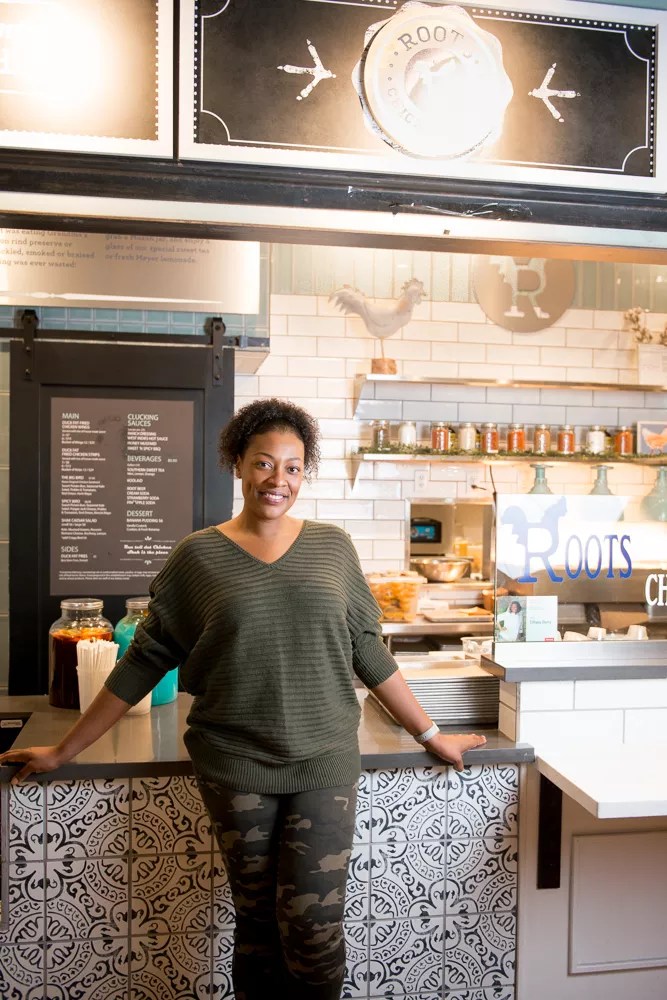
Chef Tiffany Derry photographed at Roots Chicken Shak, her fried chicken eatery at Legacy Hall in Plano.
Alison McLean
“Whites had become so dependent on black cooks that few white hostesses could cook themselves, and there weren’t enough ethnic Asian or European immigrants to take the place of black cooks in the kitchen.” This is a quote from The President’s Kitchen Cabinet, a book written by the “soul food scholar” Adrian Miller, that tells the story of the African Americans who fed America’s first families, dating back to the Washingtons. Fast-forward to today, black cooks/chefs continue to do the leg work, with little to no recognition in return compared with their white counterparts.
We talked with some of Dallas’ top black chefs to find why this is the case and how it can be fixed. The first thing we asked each chef was a question so simple, yet so deep: What’s it like to be a black chef?
“People automatically think I pretty much only do soul food, which is not the case. I do all types of global cuisines,” says chef Fitzgerald Dodd. Dodd is a native of East Texas who recently moved to College Station but was a prominent name in Dallas for years, working in elite kitchens ranging from The Crescent to Screen Door.
“I was always the only one, in almost every single restaurant I worked in,” says Tiffany Derry, a celebrity chef and owner of Roots Chicken Shak. Derry got her start in the restaurant biz at the International House of Pancakes.
“I grew up in Beaumont. I never saw any black chefs that were doing restaurants,” she says. “They were usually line cooks. Or I heard about [black people owning] catering companies, but I never saw black chefs in restaurants growing up. I remember talking with my father and uncle, and they were telling me that growing up then, it was all black guys in the kitchen.”
“Even when I talk to friends right now, and I say, ‘Can you name any black chefs that are prominent in your area?’ Everyone is always hard pressed to find one. To find one!” -Tiffany Derry
Derry touches on the increase in Latino staff she’s seen over the years, which in most kitchens in Texas still holds true. And so does the trend when it comes to management.
“I once worked at a restaurant where leadership consisted of African American, Asian and Hispanic employees,” Derry says. “Moving forward from then, it was pretty much all white. Even when I talk to friends right now, and I say, ‘Can you name any black chefs that are prominent in your area?’ Everyone is always hard pressed to find one. To find one!”
Publicity plays a big role in chef visibility.
“I remember a long time ago, another chef told me the difference between a celebrity chef and other great chefs is publicity,” Dodd says. “Nothing more, nothing less.”
Ask a black chef or restaurant owner about public relations and they likely don’t have representation. And that can be a big problem in a city as large as Dallas. But even before a chef takes a position at a restaurant, it’s important to know whether they’ll be marketed.
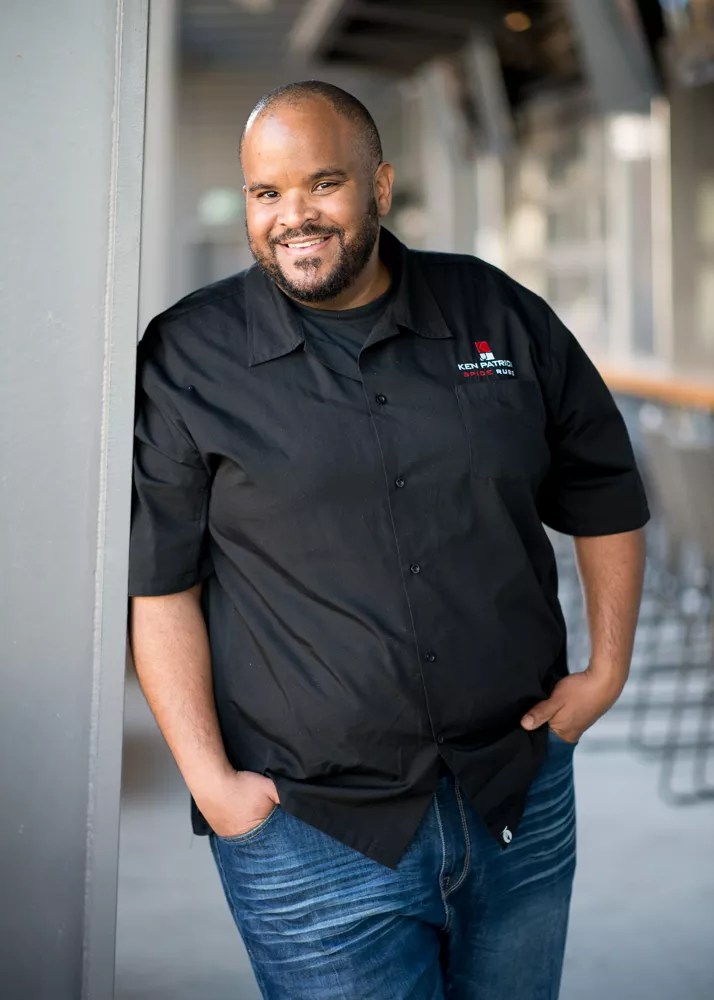
Alison McLean
“Not all restaurants market their chef,” Dodd says. “Some owners or restaurateurs won’t market their chef regardless of who they are, because they don’t want people to get attached to the chef, they want people to get attached to the restaurant.”
“I think a lot of it is PR,” says chef Ken Patrick, a private chef and grill master known for his spiced rubs. Patrick, who has appeared on TV shows Guy’s Grocery Games and Cutthroat Kitchen, is also a native of Beaumont and spent some time on the East Coast before moving to Dallas in 2006. “I’ve been approached by some, but it didn’t feel right.”
Leah Frazier, of Think Three Media, has represented a number of black-owned restaurants. She explains the challenges she’s faced getting people to both recognize these businesses and respect them.
“Dallas is a very diverse city,” Frazier says. “It’s a melting pot of different cultures and things like that, but I think sometimes when it comes to black food – or things that are traditionally rooted in black culture – from a public relations perspective, I feel like we have to go above and beyond to get people to come out and support. A lot of my clients don’t even want people to know they’re 100 percent black-owned. And that’s not even just in the restaurant business. That’s in retail as well. I think we haven’t progressed to accepting that. And that hurts.”
So where does money come into play in all of this? How much does funding have to do with recognition in the culinary scene?
“I know people who have very little experience with opening restaurants, with running restaurants,” Derry says. “They have not had the best reviews, they have not had the best of anything, and they can get investors without any problem. Personally, even I have a hard time finding investors, [even] with all the TV, with all the other things that I do.”
“We don’t get the level of sponsorships or money or those things that we see other chefs get access to,” Patrick says. “I did an event and I was promised all these sponsorships from meat companies, produce companies, things like that. I showed up to the event and none of those things happened. We had to go get steaks from the Walmart that was across the street from the event, on the day of the event.”
One developer, Monte Anderson, owner of the new Grow DeSoto Market Place, recently divulged his reasoning for investing in an incubator housing businesses that are almost all black-owned.
“As real estate investor, we’re always looking at the culture, the market,” Anderson says. “I see us all working together to support each other, and to make money. If we’re all links in a chain, and I’m strong, and somebody else is weak – and that link is broke – the chain is broke. We are only as strong as our weakest link.”
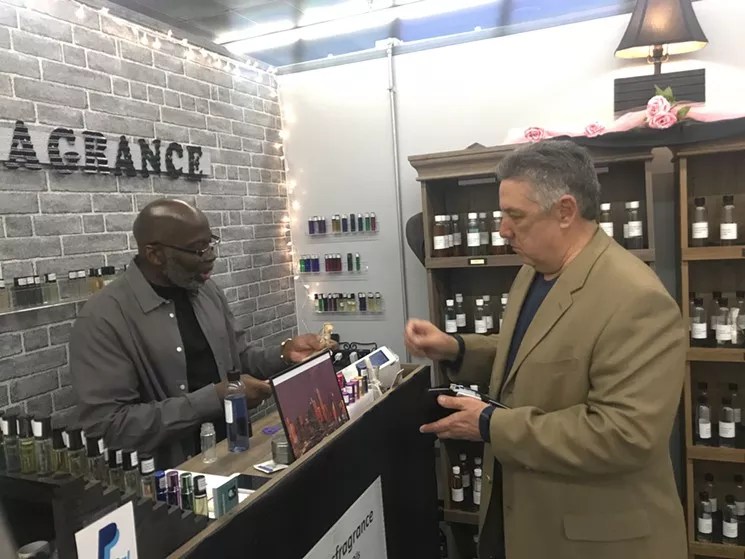
Developer Monte Anderson shops during the grand opening of Grow DeSoto Market Place, an incubator for small, often black-owned businesses in DeSoto.
Dalila Thomas
What about dollars from the black community? There’s no secret, over the years black people have been making more of an effort to support black-owned businesses, but there’s still a lot of work to be done, especially in the culinary world.
“We have issues trusting, and we always want more,” Patrick says. “I’m just keeping it real.”
“To be taken in by our people, you have to prove yourself to the 10th power,” says chef Kevin Ashade, the owner of GourmEats, a Dallas-based catering and culinary services company. “I always remind potential clients that you get what you pay for. I love being able to bring someone’s vision to life, but doing so takes thoughtful planning and precise execution.”
Ashade, who recently brought an Asian-themed food stand to the State Fair of Texas, goes on to explain how diversity in cuisines can lead to diversity in dollars for black chefs.
“Though I am trained in classical French cuisine, I’ve spent over a decade becoming well-versed in global cuisines,” Ashade says. “I’ve taught a range of cooking classes and I can prepare just about any dish, with a pinch of my own flair. I consistently ask myself: ‘Why put yourself in one narrow area when you can broaden your horizons?’ If you’re well-versed in a variety of cuisines, and able to provide five-star quality, then you’re absolutely worth more.”
Speaking of diversity, one organization that has been successfully shifting the culinary narrative is the prestigious James Beard Foundation, which has recently created initiatives to give more recognition to female chefs and chefs of color.
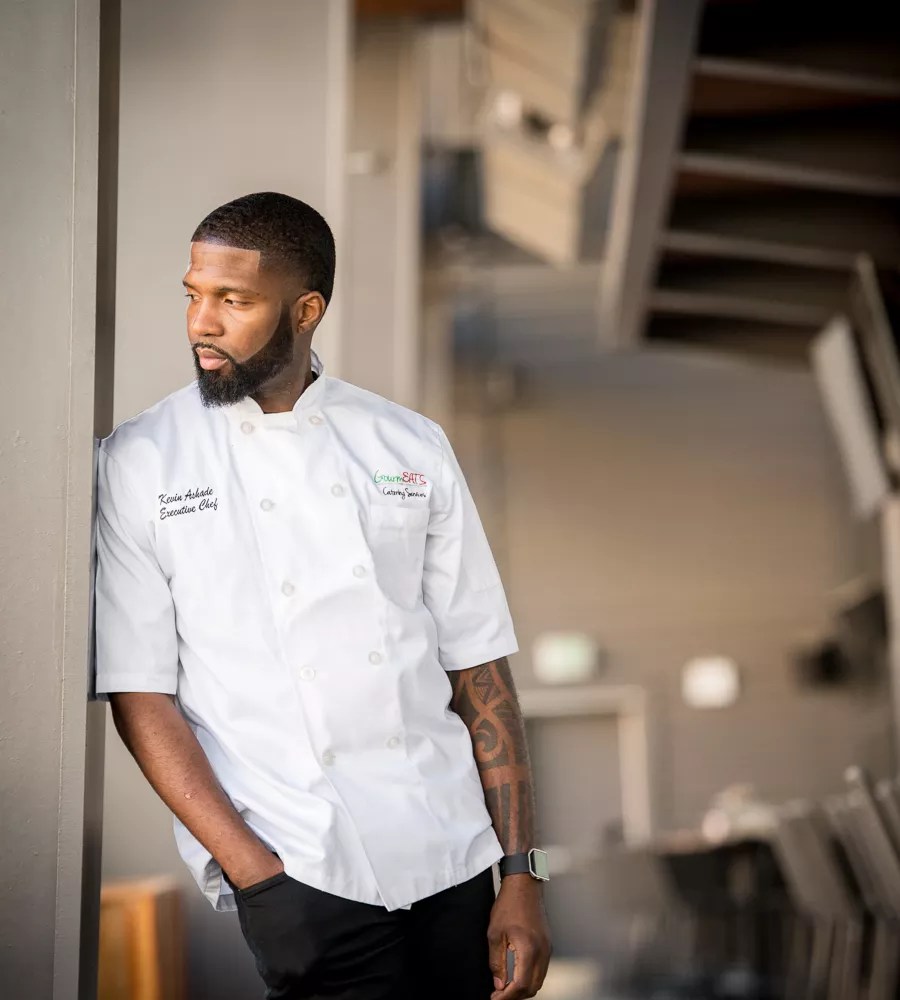
Alison McLean
“People bust their backs to get James Beard awards,” Derry says. “It’s just such an elite thing. And you see that they have recognized that there’s a problem. There’s a problem where most of their awards were going to white men. Then you saw that they were intentionally going out and looking at restaurants that had women. And now you see them opening up to all minorities.”
Derry says she has been dealing with both racial and gender issues since her career started.
“When I was applying for IHOP, the owner of the IHOP actually told me that no women were allowed in his kitchen,” Derry says. “I didn’t really understand back then, so I was just like ‘well, what’s available?’ He said a server position. And that’s when I started as a server at IHOP.”
As for the lack of visibility of black chefs, it seems the blame is not only political, but systemic. But one thing’s for sure: These chefs will stop at nothing to be removed from the back burner.
“You have to be willing to work harder than everybody else because they’re not giving you the opportunity, you have to create the opportunity,” Derry says. “You have to prove yourself everyday. That gets tiresome sometimes. It’s like, ‘God dang, I work better than them, I am better,’ but that’s not how it works. I don’t really have the solution to specifically what we can do, but what we can’t do is give up.”